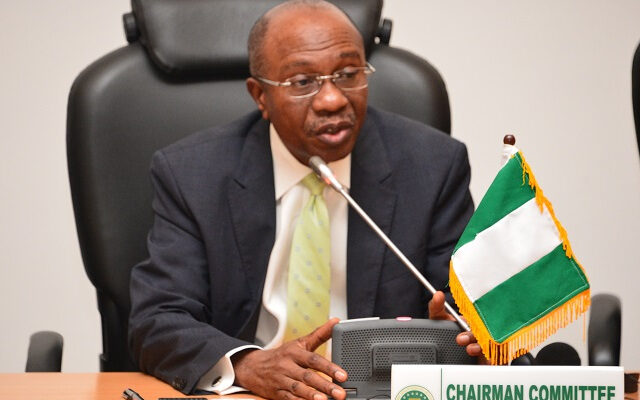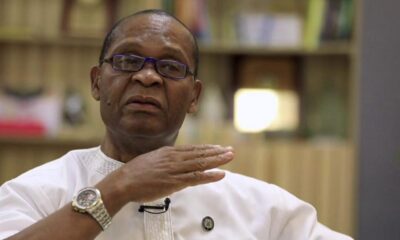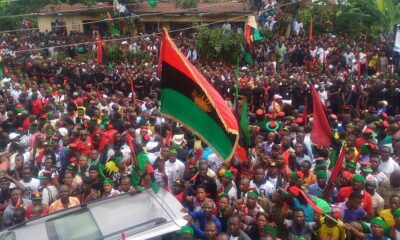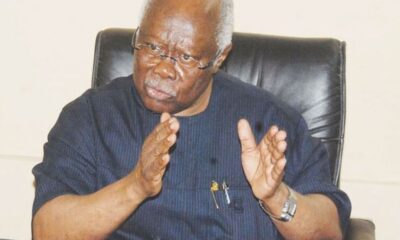Breaking News
Liquidity Crunch: Why Stockbrokers seek inclusion on CBN’s credit intervention

The current situation where 10 brokers still control over 50% of the total value of transactions on the nation’s local bourse in a market with more than 250 players raises a lot of worries that if more dealing members, especially the domestic ones, are not expanded by way of government intervention, the local bourse might face similar situation it witnessed during the global financial meltdown of 2007 and 2008.
The outcome of the meltdown saw the nation’s capital market lose huge funds, as the Nigerian Stock Exchange’s All-Share Index fell from a height of 66,000 basis points in March 2008 to less than 22,000 points by January 2009. Also, over N8 trillion, or 70% of the total market capitalisation of the exchange was wiped out during the period.
It is believed that one of the major causes of the crash in the Nigerian capital market in 2008 was the massive exodus of foreign investors from the equities market, which these top brokers are also the biggest trading houses for foreign portfolio investments. While some of these local stockbrokers are closing shops due to liquidity squeeze, the dominance of big brokers appears to be the reason they are dictating the pace in the Nigerian market for now.
That is why some stockbrokers are advocating that the federal government, through the CBN should create an intervention fund for securities dealing firms, to avail them the necessary liquidity to maintain a consistent position on quoted securities, thus stabilizing the market.
Analysis of transactions in September
Monthly trading data obtained from the Nigerian Exchange Limited (NGX) revealed that securities dealers brokered 7.4 billion shares worth N83.78 billion in September.
This is just as the market capitalization closed at N26.45 trillion at the end of the same period, with the NGX All-Share Index appreciating by 14.77%year-to-date from 42,716.44 basis points to 49,024.16bps.
According to the data, the top 10 brokers by volume were Parthian Securities Limited (PSLC); Cardinal Stone Securities Limited (CSSL); Equity Capital Solutions Limited (EQTL); Stanbic IBTC Stockbrokers Limited (SISB); CSL Stockbrokers Limited (CSLS); Morgan Capital Securities Limited (MCSE); United Capital Securities Limited (MCSE); EFG Hermes Nigeria Limited (UBAS); APT Securities and Funds –BRD (APT); and Meristem Stockbrokers Limited (MERI). The top 10 brokers by volume did 51.93% of the total volume traded in September. This amounted to 3.85 billion shares at the end of trading on 30 September.
By value, the top 10 brokers were Stanbic IBTC Stockbrokers Limited (SISB); CSL Stockbrokers Limited (CSLS); Cardinal Stone Securities Limited (CSSL); EFG Hermes Nigeria Limited (UBAS); Investment One Stockbrokers Intl Ltd-BRD (I0NE); WSTC Securities Limited; Meristem Stockbrokers Limited (MERI); United Capital Securities Limited (UBAS); Quantum Zenith Securities and Investment Limited; FBN Quest Securities Limited (FBNS). The top 10 brokers by value did 56.3% of the total value of shares brokered in September. These represented N47.22bn as trading closed on the floor of NGX for the month.
What stock brokers are saying
Some brokers have called on CBN to extend its credit intervention to securities dealers as an investment through the Nigerian capital market has been moderated by the inclement operating environment, characterised by impacts of COVID-19 and its variants on corporate earnings, misalignment of monetary and fiscal policies, high production cost and low purchasing power of consumers, currency devaluation, forex scarcity, and high inflationary pressure, among others.
Mr. David Adonri, Executive Vice Chairman, Hicap Securities Limited in a chat with Nairametrics said the economy is not much supportive of small and medium stockbroking firms. The lack of collateral to guarantee access to credit is impeding the growth of the firms.
“Infrastructure required to grow is not there, lack of support by public infrastructure is also hampering growth, but the larger scale brokerage firms have economies of scale. We are exempt from the CBN credit intervention. We are calling on CBN to include stockbrokers in the SME’s credit intervention to enable us to grow”.
Speaking in the same vein, Mr. Eugene Ezenwa, Consultant on Capital market Activities said the big ten brokers have links with foreign partners (stockbroking firms overseas) and what that means is that they have liquidity and they can raise cheap funds. Domestic investors are still very much apprehensive because of the effect of the meltdown in 2008.
After the meltdown, Nigerian banks are finding it difficult to extend credit and the CBN we have been urging for credit intervention is not helping matters”.
To the managing director, Crane Securities Limited, Mr. Mike Eze, “Based on the universally acknowledged principle that the money (short term) and capital (long term) markets complement each other in the economic development process, we wish to call on the Central Bank of Nigeria (CBN) to extend and liquidity support to the equity arm of the Nigerian capital market.
Creation of an intervention fund for securities dealing firms, to avail them the necessary liquidity to maintain a consistent position on quoted securities, thus stabilising the market is necessary”


 News20 hours ago
News20 hours agoAppeal Court Overturns Judgment On Rivers LG Elections

 News13 hours ago
News13 hours agoWhy Seyi Tinubu Can’t Be Lagos Governor- Igbokwe

 Top Stories20 hours ago
Top Stories20 hours ago“I did not punch Akpabio” – Senator Bamidele speaks on alleged fight with Senate President

 Top Stories20 hours ago
Top Stories20 hours ago2027: “No vacancy for non-indigenes in Alausa” – Lagos youths tell Seyi Tinubu

 Top Stories16 hours ago
Top Stories16 hours agoSimon Ekpa Not Our Member, Should Not Be Associated With Us- IPOB

 Politics20 hours ago
Politics20 hours ago‘Don’t Waste Your Time Again In 2027’: Bode George Begs Atiku (Video)

 News20 hours ago
News20 hours agoMy husband assaulted me, ruined my career – Olajumoke Onibread

 Top Stories21 hours ago
Top Stories21 hours agoNational Assembly Passes Bill For Life Imprisonment For Drug Traffickers





